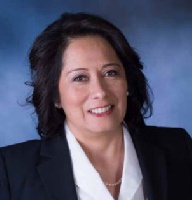Saint Charles DUI-DWI Lawyer, Illinois
Sponsored Law Firm
-
 x
x

Click For More Info:
-
LaPapa Law Group
10704 S Western Ave Chicago, IL 60643» view mapAccident & Injury Law, Criminal Defense Changing Lives One Case At A Time
At LaPapa Law Group, we understand that life doesn’t always go as planned. We have the knowledge and experience needed to competently represent you in court.
800-694-2681
Patricia Magaña
Criminal, Juvenile Law, Traffic, DUI-DWI, Felony
Attorney Magaña has extensive experience in criminal defense, including traffic, misdemeanor, and felony offenses. Additionally, she represents indiv... (more)
FREE CONSULTATION
CONTACTJohn E. Juergensmeyer
Corporate, Consumer Bankruptcy, DUI-DWI, Estate Planning
Status: In Good Standing
FREE CONSULTATION
CONTACTFREE CONSULTATION
CONTACTScott Paul Larson
Workers' Compensation, DUI-DWI, Civil Rights, Collection
Status: In Good Standing Licensed: 30 Years
Steve Olczyk
Bankruptcy, DUI-DWI, Traffic, Personal Injury, Criminal
Status: In Good Standing Licensed: 21 Years
Steve A. Olczyk
Bankruptcy, DUI-DWI, Traffic, Personal Injury, Criminal
Status: In Good Standing Licensed: 21 Years
 Gregory R. LaPapa Chicago, IL
Gregory R. LaPapa Chicago, IL Practice AreasExpertise
Practice AreasExpertise


